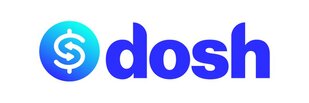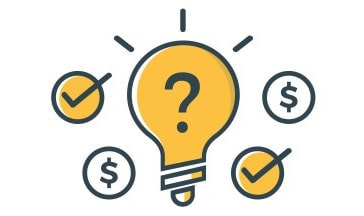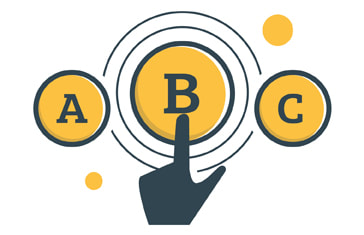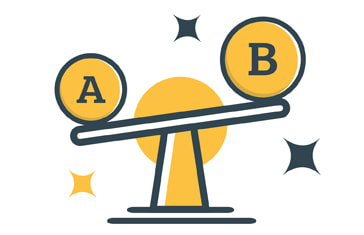Dosh Review - Understanding Dosh’s Digital Wallet, Visa Debit Card and Payments App
We review Dosh, the Visa debit card and digital wallet service. Dosh offers faster transfer times and a more convenient way to manage your money. We explain how to get a Dosh card, its costs and fees, and how it compares to traditional bank cards and accounts.
Updated 14 March 2023
Summary:
Our guide covers:
- With the rise in New Zealand businesses taking payWave, financial technology solutions are becoming increasingly popular amongst New Zealanders who want a faster, simpler way to pay. One financial technology company focused on helping New Zealanders transition to a contactless world is Dosh.
- Dosh is a New Zealand mobile wallet and financial services provider that offers a Visa debit card and digital wallet service.
- Users can transfer money from their bank account into their Dosh account and use the money to make purchases and send/receive payments with other Dosh users.
- Dosh offers faster transfer times and a more convenient payment method than traditional bank transfers. It also simplifies splitting bills and can be used as a payment option by sending or requesting payments form you contacts using your mobile phone number or scanning QR codes.
- Dosh offers valuable rewards compared to Bank cards, with no annual card rewards fee; 1% cashback on everyday spend or higher amounts at specific merchant offer promotions in the Dosh app.
- To get a Dosh card, users need to download the Dosh app, create an account, and connect it to their bank account. They can then apply for a Dosh Visa debit card through the app and provide personal information for verification.
- Dosh is generally free to use, with no cost for loading money, sending/receiving payments, or transferring money back to a bank account. The only fee is a 2% currency fee for transactions made with the Dosh Visa debit card overseas.
- For the purposes of our review, all amounts stated in the guide are in New Zealand Dollars unless stated otherwise.
Our guide covers:
What is Dosh and How Does it Work?
Dosh is a mobile wallet and financial services provider in New Zealand. Dosh offers various services, including:
- A Visa debit card, which allows users to make purchases and access various other deals and financial services. The company is known for its user-friendly interface and commitment to providing customers with an easy and convenient way to manage their money.
- Dosh also offers a digital wallet service owned and operated exclusively for New Zealanders. It allows users to load money onto their accounts and send and receive money with other Dosh users. It eliminates the need for bank transfers, making payments faster and more convenient. The idea is that you don't need to input bank account numbers - instead, you use your Dosh details to send and receive payments.
How does Dosh work?
Dosh functions similarly to a physical wallet. In the past (or currently for those who still primarily use cash), individuals would transfer money from their bank account and place it in their physical wallet to use for daily expenses. Dosh works by loading your dosh wallet form your existing bank account and allowing you to make purchases and access other financial services.
With Dosh, individuals transfer money from their bank account into their Dosh account, which acts as a digital wallet. They can then use the money in their Dosh account to transfer to other Dosh users or make purchases at businesses that accept Dosh as a payment method or via the Visa debit card.
With Dosh, individuals transfer money from their bank account into their Dosh account, which acts as a digital wallet. They can then use the money in their Dosh account to transfer to other Dosh users or make purchases at businesses that accept Dosh as a payment method or via the Visa debit card.
Why would I use Dosh over other debit cards?
1. Faster transfer times.
Dosh offers a convenient and easy way to transfer money between friends and make payments. Using Dosh, you don't need to provide bank details or wait for bank transfers to go through, making transferring money quick and simple.
2. Easier way to pay.
Because Dosh functions like digital cash, it can also be used as a payment option to send or receive money 24/7. Unlike NZ banks that don’t operate after 5pm - 10pm or on the weekend, with Dosh you can access your money and move it instantly.
3. Makes splitting bills easier.
Dosh can simplify day-to-day payments by allowing you to request or send money to friends without bank transfers easily. This functionality means that you can quickly and easily split bills at restaurants, receive payment for work done on weekends, and pay for goods and services at businesses that accept Dosh Visa Debit Card. Additionally, if you forget or misplace a card or cash, you can still make payments by scanning QR codes with your phone.
4. Access cashback Rewards on everyday spend
Dosh offers a market-leading 1% cashback, the only reward of its kind for a debit card in New Zealand. Since 2022, banks have reduced the value of rewards earned across the majority of card reward promotions, as outlined in our rewards credit card research. Dosh rewards are free to access, with no annual fee often applied to other card reward programmes.
How can I get a Dosh card? What will I need?
To get a Dosh card, you need to:
- Download the Dosh app, create an account, and connect it to your existing bank account.
- Once your account is set up, you can apply for a Dosh Visa debit card through the app.
- You can find out more about the Dosh Visa partnership here.
- You'll need to provide personal information, including your name, address, mobile number and date of birth. Having your passport or New Zealand driver's licence on hand makes this process much faster and will ensure you can get set up quickly.
- The registration process takes less than ten minutes from start to finish. Once your application is approved, you'll receive your Dosh Visa debit card in the mail after five to seven business days.
What are the costs and fees associated with Dosh?
Dosh is generally free to use. You can load money onto your account, send, and receive Dosh payments without cost. When Dosh first launched, there used to be a 1% fee to transfer money from your Dosh account back into your bank account. However, as of 2023, this fee has been removed. The only fee that cardholders will incur is when spending with the Dosh Visa debit card overseas, where Dosh charges a 2% currency fee for transactions made in a foreign currency.
How does a Dosh Visa Debit Card Compare to Other Debit Cards?
The Dosh Visa debit card is similar to other debit cards issued by the main banks in New Zealand (ASB, Westpac, ANZ, BNZ, Kiwibank). However, there are a few notable differences:
- In particular, the Dosh Visa debit card compares favourably to other debit cards in terms of its user-friendly interface and ease of payment.
- Additionally, there are no fees for issuing and holding a Dosh Visa debit card. In contrast, some banks charge a bi-yearly or yearly fee for holding an active debit card.
- The Dosh Visa debit card also generates rewards through the "Doshback Rewards" programme. Using your Dosh Visa debit card will provide cashback on specific purchases (currently this is set at 1% on all spending and higher for specific retailers). In contrast, other debit cards from the main banks in New Zealand rarely offer rewards (if at all). For example, if you spend $500 on your Dosh Visa Debit Card, $5 will be credited to your account as cashback.
What are the Pros and Cons of the Dosh Visa Debit Card?
Pros:
- Some pros of the Dosh Visa debit card include its user-friendly interface, which makes it easy to manage your money,
- Card spend is rewarded with 1% cashback paid at the start of the following month.
- A fee-free cost structure (excluding offshore transactions).
- The card also offers the ability to make purchases anywhere Visa is accepted.
- Dosh's mobile app also allows users to track their spending, set budgets, and manage their money in real-time.
- Dosh is also particularly useful when sending instant payments to friends, splitting bills or when you don't have your wallet and only have your phone.
Cons:
User Feedback:
In March 2023, MoneyHub Founder Christopher Walsh posted on Reddit asking for Dosh cardholders to share their experiences. This is a summary of some of their experiences so far:
- There’s a 2% fee on foreign currency transactions when the Dosh Visa debit card is used.
- It’s only available to residents of New Zealand which means some people living and working locally will be excluded.
User Feedback:
In March 2023, MoneyHub Founder Christopher Walsh posted on Reddit asking for Dosh cardholders to share their experiences. This is a summary of some of their experiences so far:
- "We moved our spending accounts to Dosh for 1% cashback on their debit card. We love the splitting payments feature and impressed overall with the NZ fintech startup."
- "Dosh tweaking its limits, but support and cashback offers have been great."
- "I use Dosh card for daily spending, only for 1% cash back. No issues so far."
- "Husband and I use Dosh card for all spending, around $12 back per month. My sister benefits from bonus cashback on online Countdown orders (when available)."
Must-Know Facts about the Dosh Visa Debit Card
1. Dosh's rewards programme provides generous offers to specific retailers and businesses.
A key advantage of using Dosh is the access to Dosh Deals. These deals are specific to certain regions and can be found by selecting the "Deals" option in the Dosh app. Dosh Deals directly in the app offers local discounts, cashback, and promotions from various stores. Users can search for deals by location and category and redeem them by paying the Business using their Dosh wallet. You can find out more about "Doshback rewards" here.
However, the cashback offers aren't permanent and may not always be there. Many "Doshback rewards" are only available for a specific promotion period. While it's great that Dosh has a specific section for rewards, these may fluctuate depending on what's currently on offer. The best place to see what's available is on the dedicated Cheapies thread. Past discounts and deals have included:
However, the cashback offers aren't permanent and may not always be there. Many "Doshback rewards" are only available for a specific promotion period. While it's great that Dosh has a specific section for rewards, these may fluctuate depending on what's currently on offer. The best place to see what's available is on the dedicated Cheapies thread. Past discounts and deals have included:
2. You may still incur credit card surcharges when paying with the Visa Dosh debit card.
While the Dosh Visa debit card technically operates as a debit card (as you don’t need to apply and get approved to borrow/spend like a credit card), the way you elect to pay on card terminals is by clicking the “credit” button (as prepaid cards are linked to the “credit” option on payment terminals in New Zealand). This means that if a business has elected to add a surcharge for those using the “credit” option on the payment terminal, you will incur an additional surcharge when using the Dosh card, even though technically it’s a debit card.
3. Dosh limits the total amount you can transact daily.
The daily transaction limit is set at $3,000, which includes transactions made using the Dosh Card. The weekly spending limit is $10,000. However, customers can keep their funds in their Dosh account for as long as they wish, and the money is held in a bare trust account. Note that withdrawing money from your Dosh account into your bank account is also considered a transaction/spending and will contribute towards the $3,000 and $10,000 limits.
4. There may be a credit risk if Dosh becomes insolvent.
In a traditional debit card scenario where a main New Zealand bank (such as ANZ, ASB, Westpac and BNZ) partners with a credit card issuer (such as Visa) that went bankrupt or insolvent, your money ultimately sits with the New Zealand bank, and you would have a very low risk of losing your money.
The customer deposits held by Dosh are held in a bare trust account at the BNZ, and only moved upon customer instruction. By law, the bank where these funds are held recognises these as client monies, and should Dosh become insolvent these funds cannot be utilised to pay back creditors. This applies to Dosh, but to other financial services providers in NZ who hold client monies (e.g. Sharesies).
As of February 2023, there are no protections in place to protect New Zealand bank deposits if a financial institution goes bankrupt or insolvent. However, draft legislation is currently making its way through parliament to protect up to $100,000 of Kiwi deposits if a financial services provider goes bankrupt. This legislation would effectively act as deposit insurance backed by the New Zealand Government. Check out the official news release from Parliament for more information on this scheme.
The customer deposits held by Dosh are held in a bare trust account at the BNZ, and only moved upon customer instruction. By law, the bank where these funds are held recognises these as client monies, and should Dosh become insolvent these funds cannot be utilised to pay back creditors. This applies to Dosh, but to other financial services providers in NZ who hold client monies (e.g. Sharesies).
As of February 2023, there are no protections in place to protect New Zealand bank deposits if a financial institution goes bankrupt or insolvent. However, draft legislation is currently making its way through parliament to protect up to $100,000 of Kiwi deposits if a financial services provider goes bankrupt. This legislation would effectively act as deposit insurance backed by the New Zealand Government. Check out the official news release from Parliament for more information on this scheme.
5. Expect a payment delay between dosh accounts and bank accounts.
While Dosh transfers between Dosh wallets are instantaneous, payments between Dosh and traditional bank accounts will still experience delays, given they are operating on different systems. Keep this in mind when making transfers in and out of your Dosh wallet to traditional bank accounts.
6. Dosh has the right to change the fees and limit structure at any time.
Initially, Dosh had a $5,000 wallet limit and a $2,000 daily transaction limit. However, this has increased to $10,000 and $3,000, respectively. This example shows that Dosh can change these fees and limits at any time at their discretion (as stated in their terms and conditions. Make sure you’re aware of this to avoid issues if Dosh later decides to restrict withdrawals or transfers in future.
Our Conclusion
- Overall, Dosh offers a user-friendly, convenient, and cost-effective way to manage your money in New Zealand. It's a great option for anyone looking to get a backup Visa debit card or that wants to maximise their rewards from spending.
- However, while Dosh has some great benefits, it may be easier to use the debit card tied to your primary bank with which your income/expenses are associated. You'll need to weigh up the benefits of Dosh against the additional burden of having to manage another account that’s not their main banking interface/infrastructure.
- One of the biggest benefits is the rewards and sporadic deals (such as one-day specials of 50% off at McDonalds, which are less common for debit cards and more common for credit cards. Additionally, while Doshback Rewards is a pure cashback programme so is theoretically the "easiest" to "spend" (as you're just getting cash back, so you don't have to find ways to spend a different currency like Airpoints or Flybuys), deals may be sporadic and are only available at specific retailers or businesses.
- Apart from the Dosh Deals in app which are monthly deals with online retailers, all purchases at all retailers online/retail (where Visa is accepted) can get 1% Cashback (with the exceptions of standard exclusions such as money spent gambling).
- One drawback is that people aren't actively using it, so the "split" functionality and other key features may be less attractive until Dosh becomes widely adopted in New Zealand (as people will need to download the app). Another significant drawback is the risk of losing your deposits if Dosh goes bankrupt or insolvent. Finally, the Dosh Visa card for overseas travel is still inferior to options like Wise.
More details:
- Compare Debit Cards In New Zealand.
- How do Credit Cards Work? - The Definitive New Zealand Guide
- Credit Cards - Comparisons, guides, reviews and resources to help you choose the right card for your needs.
- The Best Credit Cards
- Our Favourite Cards - MoneyHub Best Picks
- Compare Travel Money Cards
- Rewards and Cashback Credit Cards Comparison
- Low-Interest Credit Cards
Frequently Asked Questions (Related to the Dosh Visa Debit Card)
How much does Dosh cost? Are there any hidden fees?
Dosh is free to use. There's no cost to open an account or make or receive payments. You can also transfer money from your Dosh mobile wallet to a nominated bank account without fees. For more information, check out Dosh's terms and conditions.
How is Dosh different from a bank transfer?
Dosh offers a more efficient way to pay and receive money than traditional methods. For example, with traditional methods, such as bank transfers, setting up a new payee on non-business days (like the weekend) may have delays, and the money might not show up in your account until the next business day. However, Dosh allows instant payments 24/7 from anywhere, as long as the recipient's mobile number is in your phone contacts list. Additionally, Dosh allows businesses to generate QR codes for easy scanning.
Dosh seems too good to be true. Is it a cryptocurrency? Is it a scam?
Dosh isn’t a cryptocurrency. Dosh is a digital wallet service that allows users to transfer and access New Zealand dollars from their bank account through the Dosh app on their smartphone. The funds are held securely in a bare trust account at a New Zealand bank. Dosh is a registered financial services provider per their disclosures and registration of Dosh's trading company MCA Investments Limited. However, as stated above, a credit risk may still exist if Dosh goes bankrupt or insolvent.
Is the Dosh Visa debit card available to residents of other countries?
No, the Dosh Visa debit card is currently only available to residents of New Zealand.
Can I use the Dosh Visa debit card to withdraw cash at ATMs?
Unfortunately, at this stage, you can't use the Dosh Visa debit card to withdraw cash at ATMs.
Can I use the Dosh Visa debit card internationally?
Yes, the Dosh Visa debit card can be used internationally, although a 2% foreign currency fee will be added to the total purchase price when spending in foreign currency.
Am I only limited to requesting or sending money to/from other existing Dosh users?
You can pay or request money from anyone on your phone contacts list, not just Dosh users. To do this, you open the Dosh app, select Pay & Request, and select the contact you want to pay or request money from. Next, enter the amount and proceed to confirm the details.
If the recipient doesn't have Dosh, they'll receive an SMS with a referral code to open a Dosh account and receive the payment. Note that if the recipient chooses not to download the Dosh app within seven days of receiving the SMS, the payment will be reversed to your Dosh account.
If the recipient doesn't have Dosh, they'll receive an SMS with a referral code to open a Dosh account and receive the payment. Note that if the recipient chooses not to download the Dosh app within seven days of receiving the SMS, the payment will be reversed to your Dosh account.
If Dosh doesn’t charge any fees, how do they make money?
Dosh makes money from the interchange fee, which is set by the card schemes of which Dosh receive a portion as the card issuer. This revenue generation is standard practice for card issuers such as New Zealand banks, credit cards and travel money cards.
Is Dosh safe? Is Dosh approved to operate in New Zealand by banking regulators?
The money in your Dosh account is held as electronic money – Dosh is not a bank, but a registered FSP (Financial Services Provider). All money held with Dosh is held in a secured BNZ commercial trust account for the benefit of its customers.
Dosh uses multiple safety measures to protect users' privacy and money, such as PIN and biometric access. Dosh doesn't retain users' banking information and is regulated by the Department of Internal Affairs (DIA) as a registered financial services provider. More information about DIA and financial regulation can be found here.
Dosh uses multiple safety measures to protect users' privacy and money, such as PIN and biometric access. Dosh doesn't retain users' banking information and is regulated by the Department of Internal Affairs (DIA) as a registered financial services provider. More information about DIA and financial regulation can be found here.







